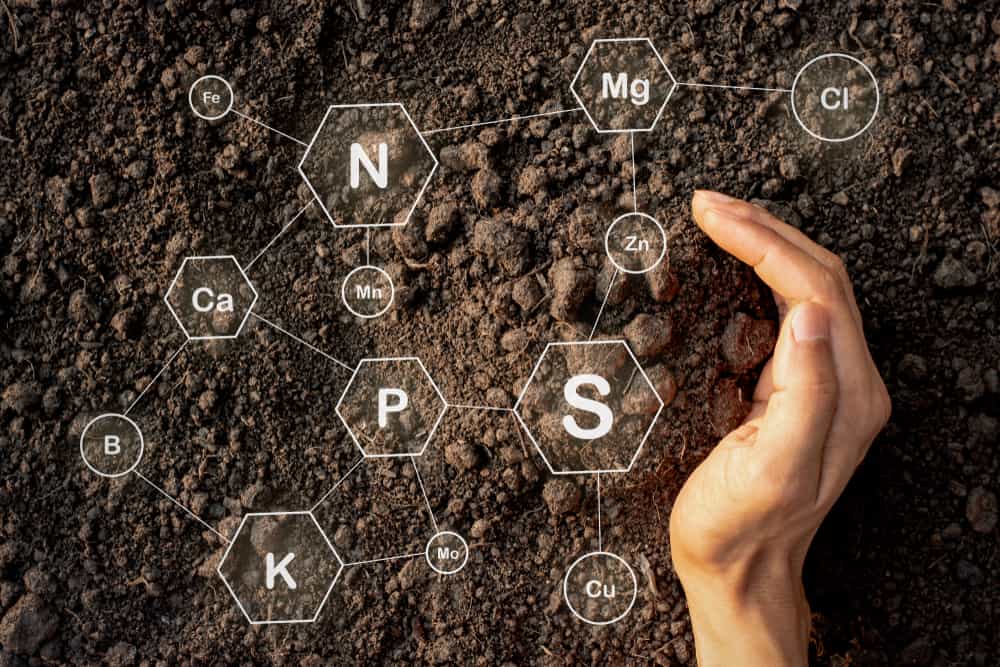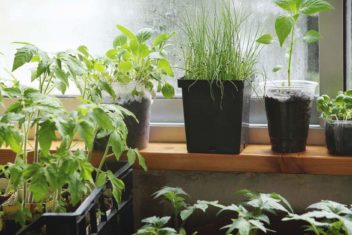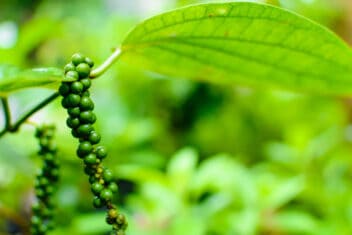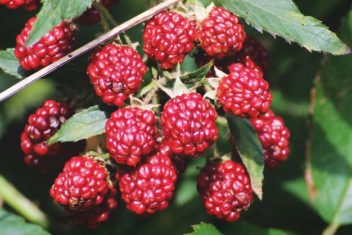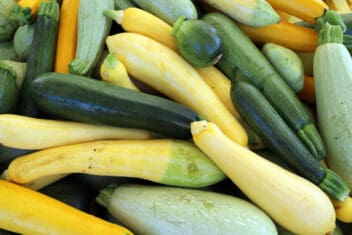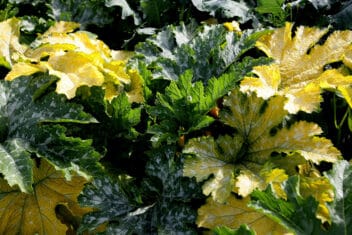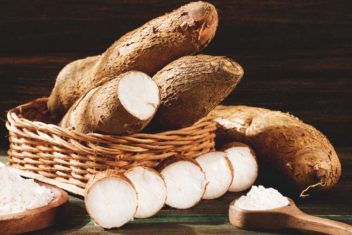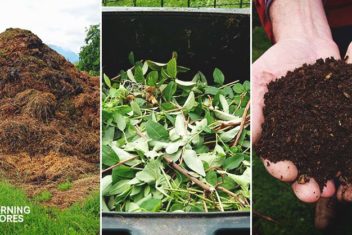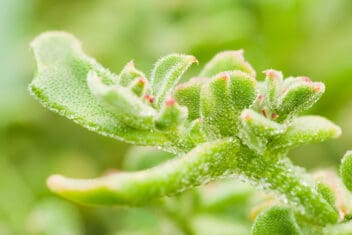There are many ways to boost the nutrients in your soil when planting crops, such as adding mulch or choosing the right companion plants. But sulfur is a key component to keeping your plants healthy.
Before you start using sulfur, it’s important to understand how it works and how it can benefit your garden. This article will give you an overview of how to use sulfur and what it can do for your garden.
What Is Sulfur?
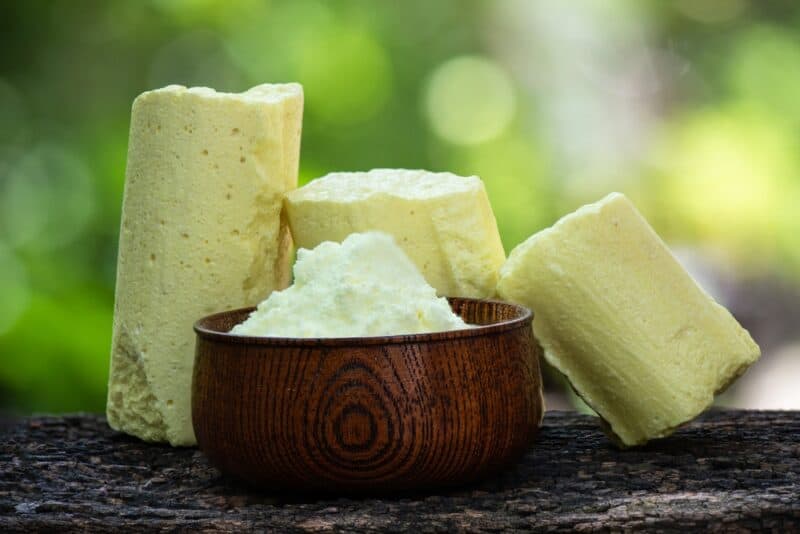
To keep it simple, sulfur is a nonmetallic chemical element. In the periodic table, it’s represented as “S.” Sulfur is one of the most abundant chemicals on the plant.
Most of us are familiar with it in volcanoes and hot springs in places like Yellowstone National Park. It appears throughout the Earth’s crust and ocean in the form of sulfate and likely into the Earth’s mantle.
This element is critical for the development of enzymes, proteins, and amino acids. It combines with other elements to make up rocks and minerals. It’s an important part of fertilizer and it’s used to treat fungal issues and pest problems.
Sulfur is typically applied to plants in a powder or spray to treat fungal issues or to alter the soil with fertilizer rich in sulfur.
Sulfur is registered as safe to use by the EPA (Environmental Protection Agency) as a pesticide, fungicide, and fertilizer.
Without this essential element, plants will stop growing, and you’ll have dead plants. Not only does sulfur increase the nutrients, but it also kills insects and fungi. It also functions as a pesticide in some instances.
After you’ve applied a sulfur-based product to the soil, it promotes cell respiration. There’s research to prove it kills insects when they come in contact with a product containing it.
Plants and Sulfur
Sulfur interacts with nitrogen to produce amino acids. Then, these acids turn into proteins. This encourages growth and increases the rate of photosynthesis, which is vital for the plant to survive on its own.
Leguminous crops and potatoes need more sulfur than other crops, while others require less.
Many gardeners need to keep the pH levels at a specific number for their crops, and elemental sulfur is a proven way to alter the soil’s pH. Sulfur mixes with the hydrogen atoms and increases the acidity of the soil.
If you’re using elemental sulfur to alter the pH of the soil, do it slowly and over several months rather than all at once.
This element needs time to work, so plan ahead and test the pH regularly to monitor how the soil changes.
Sulfur Deficiency
There are several physical signs of sulfur deficiency. The most common symptoms of sulfur deficiency are stunted growth, poor harvest quality and quantity, and discolored leaves.
These symptoms could indicate a disease or pest infestation, so double-check for other signs before adding sulfur. One way to test for sulfur deficiency is to purchase a soil testing kit and take samples from different areas.
Checking in multiple areas is crucial for accuracy.
How to Use Sulfur in the Garden
There are various methods for using sulfur in your garden. Not only can it alter pH, but it can add nutrients, kill pests, and destroy fungal pathogens. Let’s talk about fertilizer, first.
As a Fertilizer
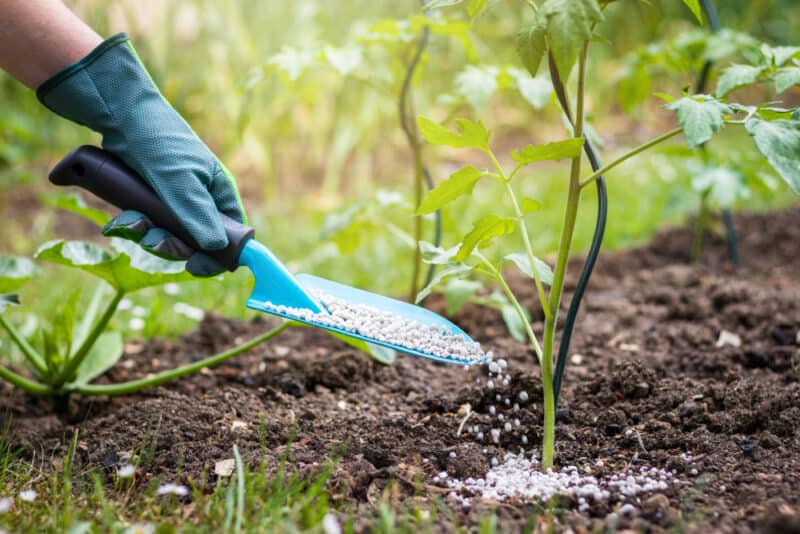
You won’t use sulfur alone as a fertilizer. Instead, it’s usually incorporated with other ingredients. Most of these are targeted at acid-loving plants. A powder or granulated formula is a simple way to spread fertilizer in a controlled way.
To use a powder, scoop out the recommended amount and sprinkle it evenly over your garden on a calm day. Don’t apply powder when it’s windy. Mix the powder into the soil to ensure it stays where you want it.
To Lower the Soil pH
Once you’ve tested the soil for its pH level, you will need to adjust the pH to suit whatever it is you’re planting.
If you want to use elemental sulfur to lower the pH levels, make sure that you apply it months or a year before planting. Sulfur doesn’t act immediately, it takes time to gradually change the soil.
Work the sulfur into the soil so it’s three inches deep, giving it time to work.
Don’t forget to do regular soil tests so you know if you need to work more sulfur into the soil.
After a few months or a year, you should see an improvement in the soil quality and can start planting new crops.
As a Fungicide
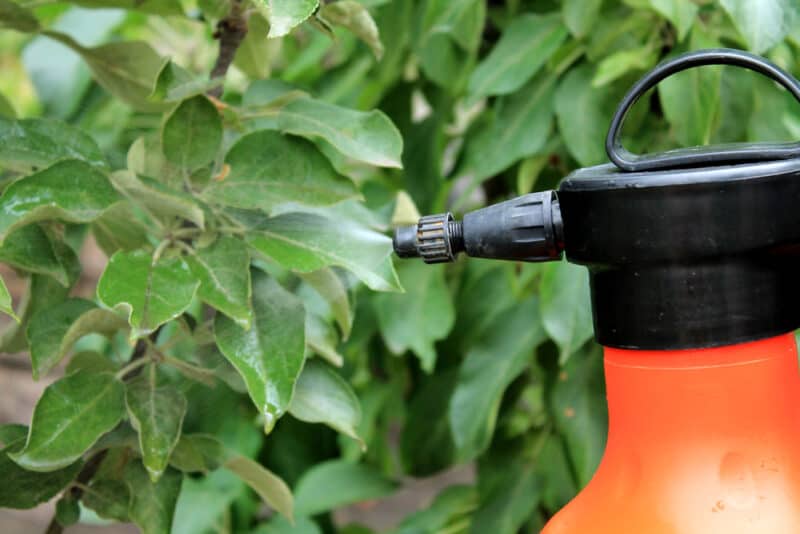
Sulfur is an effective fungicide against a number of different diseases. You can apply it as a powder or mix it with water to spray on the plants.
Benefits of Sulfur
Fertilizer can be great for getting a better harvest on your crop of vegetables and prolonging the life of flowers. The plant will absorb energy and grow faster when you use sulfur fertilizer. At the same time, it can kill off pathogens.
On top of that, it lets you adjust the pH so that you can grow a wider range of plants.
Biodiversity is a key element of a healthy garden. You want to encourage bacteria and fungi to produce in your soil. Keeping it healthy with the right pH and nutrients is a key part of that.
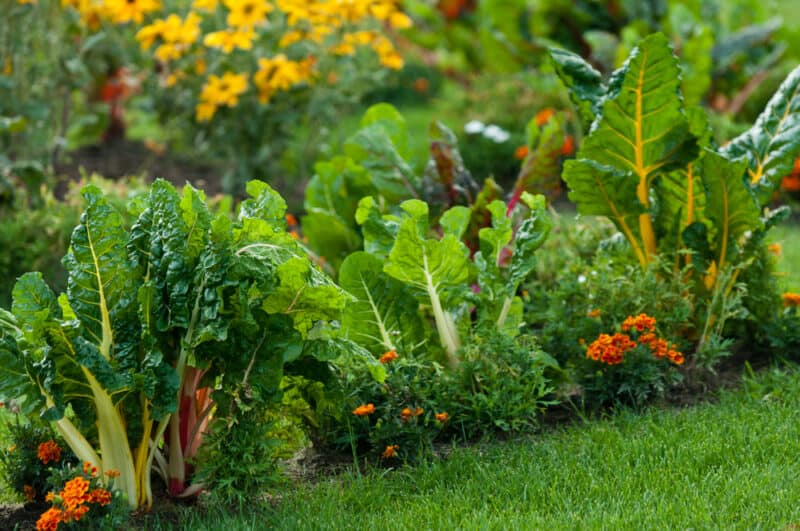
Applying too much, however, can also have damaging effects. Follow the manufacturer’s directions closely.
Use Caution
Be aware that sulfur dust can irritate skin and eyes, so use caution. To avoid experiencing irritation from sulfur, always read the label carefully and follow the safety instructions.
The side effects of sulfur are low in people, but it can lead to stomach issues if digested. It’s also possible that breathing in sulfur can lead to breathing issues and other complications if inhaled in large quantities.
Some people are allergic to sulfur and will show signs of an allergic reaction when exposed.
If you have a reaction to the product, stop using it immediately and seek medical attention. To keep your family and pets safe, store the sulfur powder or pesticide in a safe location to prevent the risk of inhalation.
